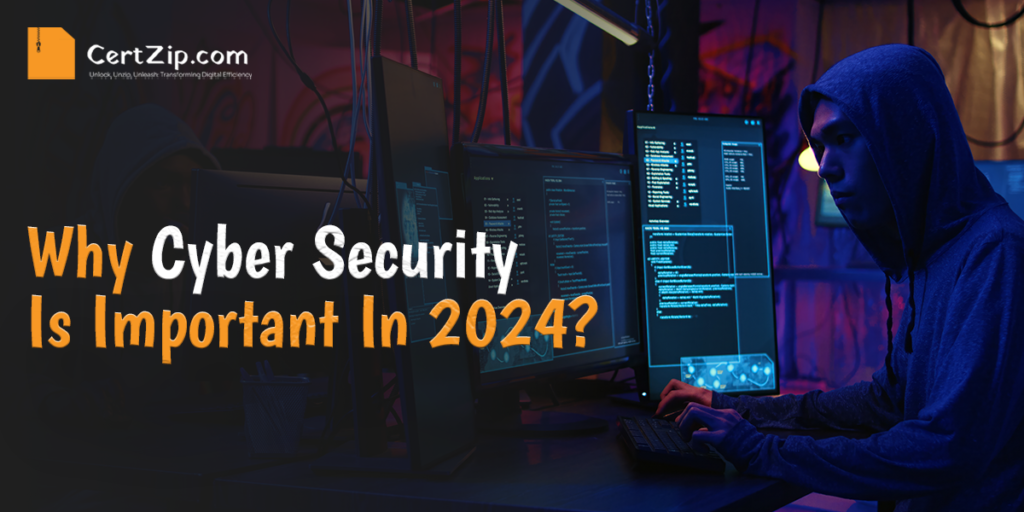The digital landscape has evolved into an interconnected ecosystem where nearly every aspect of daily life relies on technology. From personal communication and social media to business operations and government infrastructure, the world has become more reliant on digital platforms and networks than ever before. This growing connectivity brings countless benefits, such as convenience, efficiency, and innovation. However, it also comes with significant risks, making cybersecurity—and the need for a Cyber Security Course—a critical concern for individuals, businesses, and governments alike.
As more people and organizations depend on the internet for communication, commerce, and data storage, the frequency and complexity of cyber threats have also increased. Cyberattacks are no longer isolated incidents; they have become a widespread global issue. From data breaches that expose sensitive personal information to sophisticated malware designed to disrupt critical systems, the consequences of failing to address these threats can be devastating.
As cyber threats evolve, they become more complex and harder to detect, underscoring the need for robust cybersecurity measures. These measures must constantly adapt to counter new forms of attack, such as ransomware, phishing, denial-of-service attacks, and other malicious tactics.
The rapid advancement of technology, including cloud computing, artificial intelligence, and the Internet of Things (IoT), has made it easier for hackers to exploit vulnerabilities in digital systems. Without adequate cybersecurity, sensitive data, financial assets, and even national security can be at risk.
Here are the major key points:
Increasing Cyber Threats
The number of cyberattacks is on the rise. From large-scale breaches affecting multinational corporations to attacks targeting small businesses, cybercriminals are constantly finding new ways to exploit vulnerabilities. In 2024, ransomware attacks have surged, with hackers locking critical data and demanding significant sums for its release. These attacks can cause severe financial losses, disrupt operations, and damage a company’s reputation.
Phishing attempts are also more advanced, using personalized tactics to trick individuals into revealing sensitive information like passwords or credit card numbers. This escalation in threat sophistication highlights the need for vigilant and advanced cybersecurity practices.
Safeguarding Sensitive Data
Protecting sensitive data is one of the primary reasons cybersecurity is so vital in 2024. Companies collect and store large volumes of personal information, including customer details, financial data, and proprietary business information. A data breach can have catastrophic consequences, leading to identity theft, financial losses, and severe damage to brand reputation.
As more companies rely on cloud storage and digital platforms, data protection has become more challenging. Strong encryption, two-factor authentication, and secure networks are essential to safeguarding this valuable data from unauthorized access or theft.
The Remote Work Challenge
The rise of remote work—accelerated by the COVID-19 pandemic—has introduced new cybersecurity challenges. Employees are often accessing company data from personal devices or unsecured networks, which can create significant vulnerabilities for businesses. In 2024, remote work is here to stay, making it essential for organizations to adopt robust cybersecurity strategies to protect their systems.
Businesses are now deploying virtual private networks (VPNs), secure cloud storage solutions, and advanced endpoint protection to ensure that remote employees can work safely without compromising sensitive data.
Compliance with Data Protection Regulations
Many countries and regions have strict data protection regulations in place that mandate how businesses handle customer data. For example, the General Data Protection Regulation (GDPR) in Europe and the California Consumer Privacy Act (CCPA) in the U.S. require companies to implement specific cybersecurity measures to protect personal data. Certifications such as CISA – ISACA, CISM – ISACA, and Comptia Security+ can help cybersecurity professionals ensure compliance with these regulations by equipping them with the knowledge and skills needed to implement effective data protection strategies.
Failing to comply with these regulations in 2024 can result in hefty fines and legal action, not to mention the loss of consumer trust. Having a comprehensive cybersecurity strategy helps businesses stay compliant with these laws, ensuring they avoid penalties and maintain customer loyalty.
Financial Impact of Cyberattacks
Cyberattacks can have a devastating financial impact. In 2024, financial fraud, identity theft, and account takeovers are becoming more common. Companies in the financial sector, including banks and payment platforms, are particularly vulnerable. Cybercriminals are targeting these institutions to steal money, commit fraud, or even manipulate financial markets.
Moreover, the rise of cryptocurrencies has opened new avenues for cybercrime, with many crypto exchanges and wallets being targeted by hackers. Strengthening financial cybersecurity is crucial to protect businesses and consumers from these costly attacks.
Protecting Business Reputation
In the current digital era, a business’s reputation is directly related to how well it protects client data. A company’s reputation may suffer long-term harm from a cybersecurity breach, which might erode consumer confidence. Recovering from the reputational damage caused by a data breach can be challenging, particularly for small organizations.
Investing in strong cybersecurity measures not only helps prevent attacks but also reassures customers that their data is safe. In 2024, businesses with a reputation for strong security protocols often have a competitive advantage in the market.
Securing Evolving Technologies
As technology advances, so too do the possible threats to cyber security. 2024 is a year of rising technologies, such as artificial intelligence (AI) and the Internet of Things (IoT), which are changing sectors but also bringing new threats. IoT devices, for instance, often lack strong security features, making them easy targets for hackers to infiltrate larger networks.
AI-driven systems, while providing efficiency and automation, can be manipulated or compromised if not properly secured. Businesses must invest in cybersecurity solutions that address the risks posed by these rapidly advancing technologies.
Conclusion:
By 2024, cyber security will be a need rather than an option. The increasing number of cyber threats, the expansion of remote work, and the need to protect sensitive data are all driving the demand for stronger security protocols. By investing in comprehensive cybersecurity solutions and obtaining certifications such as CCISO Certification, businesses can protect their assets, ensure compliance with regulations, and build customer trust in an ever-connected digital world.


